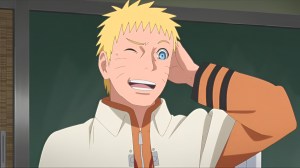Black Widow had the difficult task of weaving Natasha Romanoff’s backstory into a complex canon which has already established much of her present day story since 2010 and teased pieces of what went on before her Iron Man 2 debut. Furthermore, it was set in the brief period of time between Captain America: Civil War and Avengers: Infinity War, two movies before Scarett Johansson’s character made the ultimate sacrifice to save the universe in Avengers: Endgame. For Black Widow director Cate Shortland, fulfilling Natasha’s story and arc while also pushing the Marvel universe into a some darker, grittier territory with an honest feeling of stakes was quite an undertaking. Spoilers for Black Widow follow.
Videos by ComicBook.com
“The script was the hardest part of the process,” Shortland told ComicBook.com in an exclusive interview. Prior to Black Widow, Shortland’s resumé did not include any major franchise titles but intimate films looking at relationships and family dynamics. It’s clear to see why Marvel picked her for Widow. “The biggest thing was she’d kept all these secrets for so long, so you really felt that she wouldn’t reveal herself naturally,” Shortland said. “So we had to work really hard to get her to reveal herself as a character.”
As for the fans seeking closure in regards to Natasha Romanoff bowing out of the Marvel Cinematic Universe, Shortland is optimist. “I believe that we become part of the ether, so I think she’s still here,” Shortland said. “So in my mind, I wanted to use fireflies and the essence of this light in the darkness that she’ll always be here and it was during that private moment with her sister at the end that, for me, showed she never wanted a big public funeral. She chose to be in this very natural place and it’s quiet and it’s small and that’s something beautiful. Again, something she kept private from all of us. She’s even buried in a private place.”
In the exclusive interview with ComicBook.com, seen in the video above and article below, Shortland dives into her process of joining Marvel Studios as a director. As it turns out, she was able to make just the movie she wanted to make, including cutting a few sequence which she hopes are revealed later. “There’s some really beautiful moments that we’ve cut out, but I think they’ll be in a deleted scenes pack,” Shortland said.
Continue reading to see our full, uncut interview with the director feel free to watch it on the ComicBook.com YouTube channel!
The Backstory
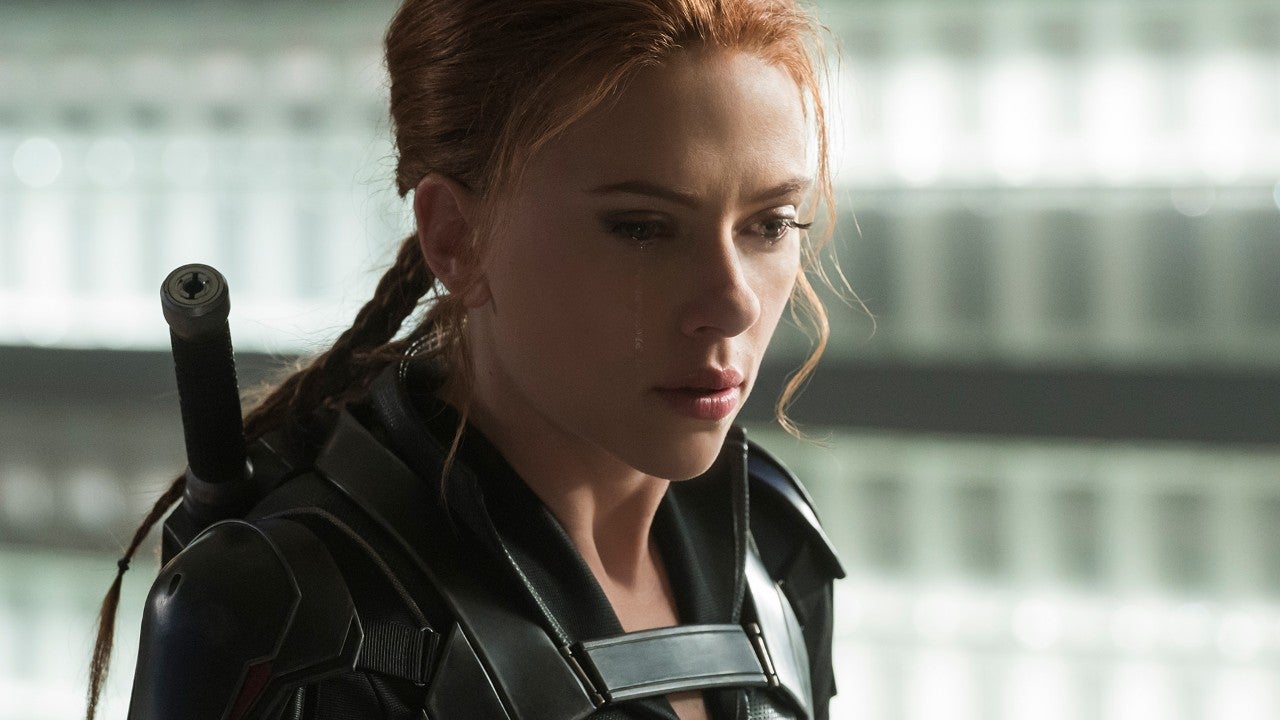
ComicBook.com: You really gave MCU fans many of the answers of Natasha’s past. How tricky was it to weave in this story and expand Natasha’s world when she’s been in around and in stories for so long already?
Cate Shortland: The script was the hardest part of the process, so I think Jac Schaeffer was talking about that. I looked at what she’d said a little bit about her process with the writing and she said it was harder than WandaVision was to create. And then we had Eric [Pearsons], who wrote [Thor: Ragnarok]. He also ended up doing the screenplay. So it was like everybody was adding to it. But the biggest thing was she’d kept all these secrets for so long, so you really felt that she wouldn’t reveal herself naturally. So we had to work really hard to get her to reveal herself as a character.
CB: We go into movie knowing that Natasha will survive because we know she goes on to Infinity War and Endgame. Still, you create a feeling of stakes for her and for other characters. I’d love to hear from you how you honed in on making it feel like these characters were still very vulnerable, despite the fact that one might not die?
CS: Kevin Feige spoke about that from the beginning, which… We spoke about that even though we knew what had happened to her in Endgame, it still had to feel at times that she was in trouble, and say with that Taskmaster fight on the bridge, we wanted to make it really raw. I kept thinking about women that have been attacked on the street. So we wanted to make it really gritty, and that other people could relate to it. It wasn’t two sort of superhero characters fighting. It was Natasha fighting for her life and I think that’s kind of the spirit of the film that we wanted to take throughout.
The Closure
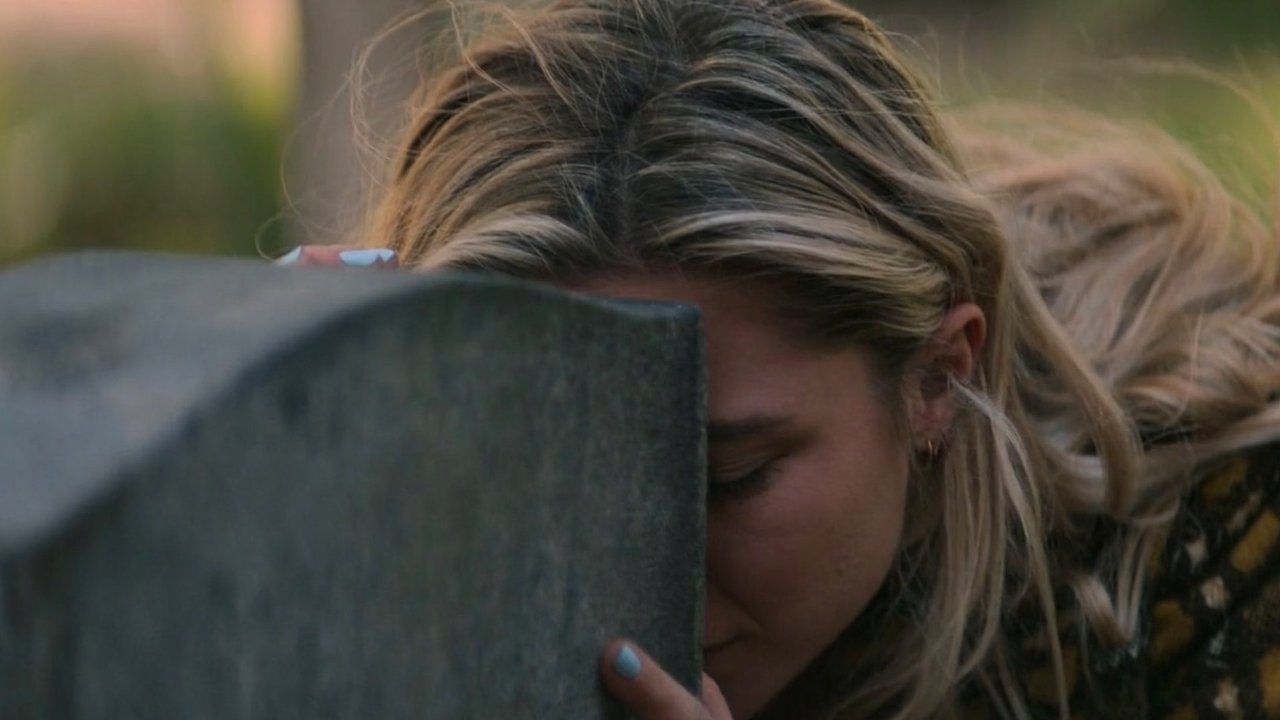
CB: The movie gets a little dark for Marvel, at times. Did you kind of have to push for pushing the envelope, or was it Marvel saying, “You know what? We love what you did.” How does that work?
CS: I worked with Brian Chapek, who was my producer, and he was all for rawness and vulnerability. So he was also really great. If I faulted, he’d go, “No, no, you’re right. Keep going, keep going.” So he and I said it had to be really intimate and really epic. So he really wanted that rawness as well in the fights, and so did the choreographers, and the stunt people. So we’re always, always going for what felt truthful.
CB: I remember feeling weird when Natasha died in Endgame because I was like, “Well, she’s coming back, right? The whole purpose of this movie is bringing people back.” Then, we never really got closure as we went back to the fight. In Black Widow, you feel more closure. Did you want to offer a feeling of closure and conclusiveness to Natasha’s journey?
CS: I believe that we become part of the aether, so I think she’s still here. So in my mind, I wanted to use fireflies and the essence of this light in the darkness that she’ll always be here and it was during that private moment with her sister at the end that, for me, showed she never wanted a big public funeral. She chose to be in this very natural place and it’s quiet and it’s small and that’s something beautiful. Again, something she kept private from all of us. She’s even buried in a private place.
The Passing of the Baton
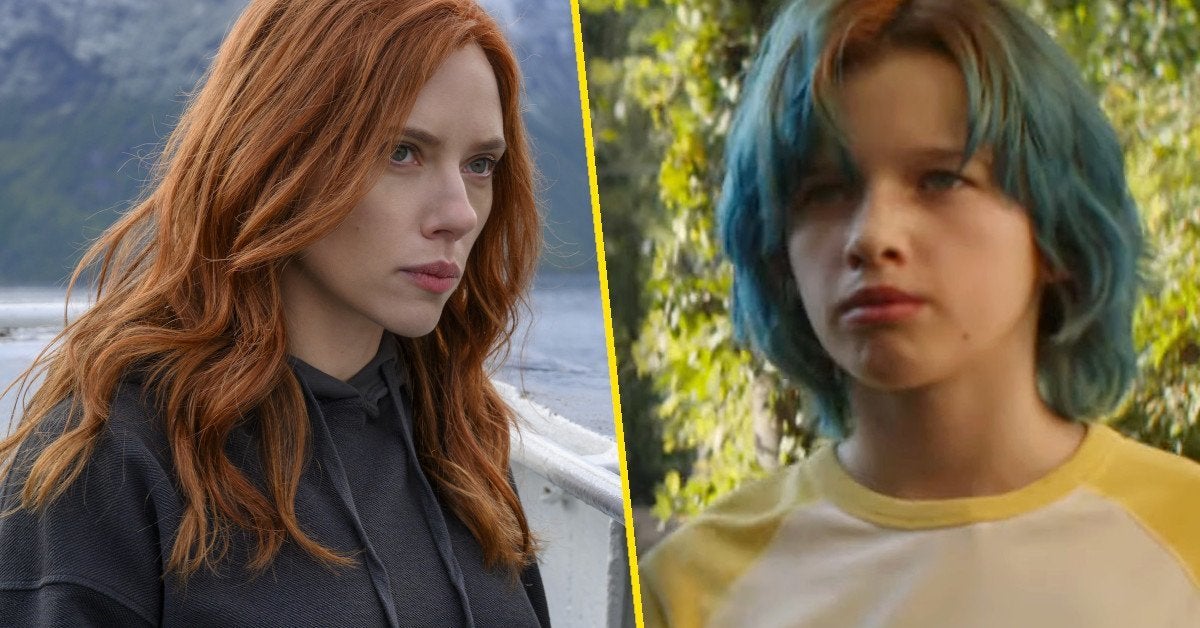
CB: Natasha is a character that Scarlet has played for a decade and you had the task of casting a young Natasha. I’d love to hear about landing on Ever Anderson to play the young version of this character.
CS: Well, we looked at a lot of girls, and as soon as we saw Ever and saw what she could do, it was her straightaway. And yeah, what a joy she is. I think if she wants to work hard, I think she’ll go a long way. I think she’s a beautiful actress and she’s really instinctual. So it was great having her on set and she was fearless. In some of the fighting that she had to do, the little bits, we had to basically drag her off people because she’d just go. I remember the first time she screamed really loud in Russian, because she speaks fluent Russian, I got just cold shivers all over.
CB: On that note, would you be interested in a sequel, whether it’s more Natasha in the past or Yelena in the future? Is that something you’ve thought about at all?
CS: I think they’re all great characters and I think what people want is they want diversity. I think we want to see female superheroes kicking ass. I think we’re all interested in seeing more of them.
The New Faces And Deleted Scenes
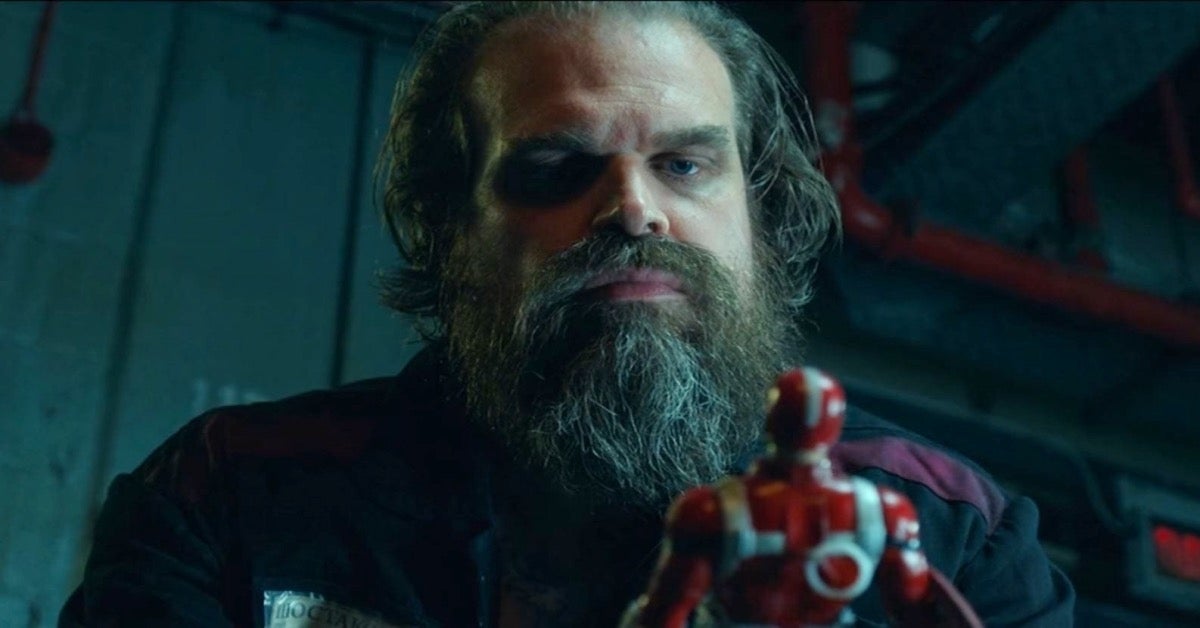
CB: You introduce David Harbour as Red Guardian. I’m sure you’re familiar with the Winter Guard from comics and there are little nods like naming “Crimson Dynamo” and “Ursa.” Are those intentional, and do you think that’s something that could be out there?
CS: I think he is an amalgamation…He’s like this amalgamation of so many superheroes because he’s watched them all fight, and not like a Taskmaster, instead, David gets it wrong every time. So Taskmaster would achieve it. Alexei would mess it up.
CB: Were there any deleted scenes or characters that just didn’t make the cut?
CS: Yeah. There’s some really beautiful moments that we’ve cut out, but I think they’ll be in a deleted scenes pack.
CB: Taskmaster’s shield, it’s thrown like Captain America’s. Cap’s shield is made of Vibranium. Did you guys have any conversations about what Taskmaster’s shield is made of?
CS: We did. And you know what? I want you to ask Brian Chapek what it’s made out of, the producer.







